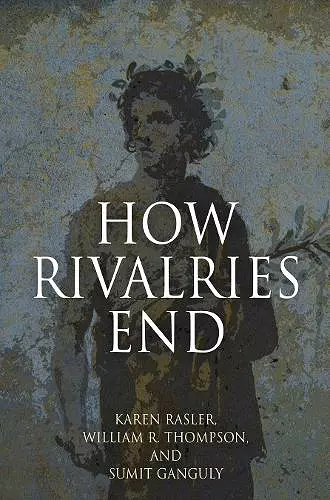How Rivalries End
Sumit Ganguly author William R Thompson author Karen Rasler author
Format:Hardback
Publisher:University of Pennsylvania Press
Published:19th Apr '13
Currently unavailable, and unfortunately no date known when it will be back

Examining political hot spots stretching from Egypt and Israel to North and South Korea, How Rivalries End builds an original theory from patterns in successful conflict resolutions and reveals the key factors in reducing tensions and building long-term peace between adversaries.
Rivalry between nations has a long and sometimes bloody history. Not all political opposition culminates in war—the rivalry between the United States and the Soviet Union is one example—but in most cases competition between nations and peoples for resources and strategic advantage does lead to violence: nearly 80 percent of the wars fought since 1816 were sparked by contention between rival nations. Long-term discord is a global concern, since competing states may drag allies into their conflict or threaten to use weapons of mass destruction. How Rivalries End is a study of how such rivalries take root and flourish and particularly how some dissipate over time without recourse to war.
Political scientists Karen Rasler, William R. Thompson, and Sumit Ganguly examine ten political hot spots, stretching from Egypt and Israel to the two Koreas, where crises and military confrontations have occurred over the last seven decades. Through exacting analysis of thirty-two attempts to deescalate strategic rivalries, they reveal a pattern in successful conflict resolutions: shocks that overcome foreign policy inertia; changes in perceptions of the adversary's competitiveness or threat; positive responses to conciliatory signals; and continuing effort to avoid conflict after hostilities cease. How Rivalries End significantly contributes to our understanding why protracted conflicts sometimes deescalate and even terminate without resort to war.
"With impeccable scholarship, How Rivalries End utilizes a vast theoretical, empirical, and extraordinary case literature. This is a highly original study and a much needed one." * John Vasquez, University of Illinois at Urbana-Champaign *
ISBN: 9780812244984
Dimensions: unknown
Weight: unknown
280 pages